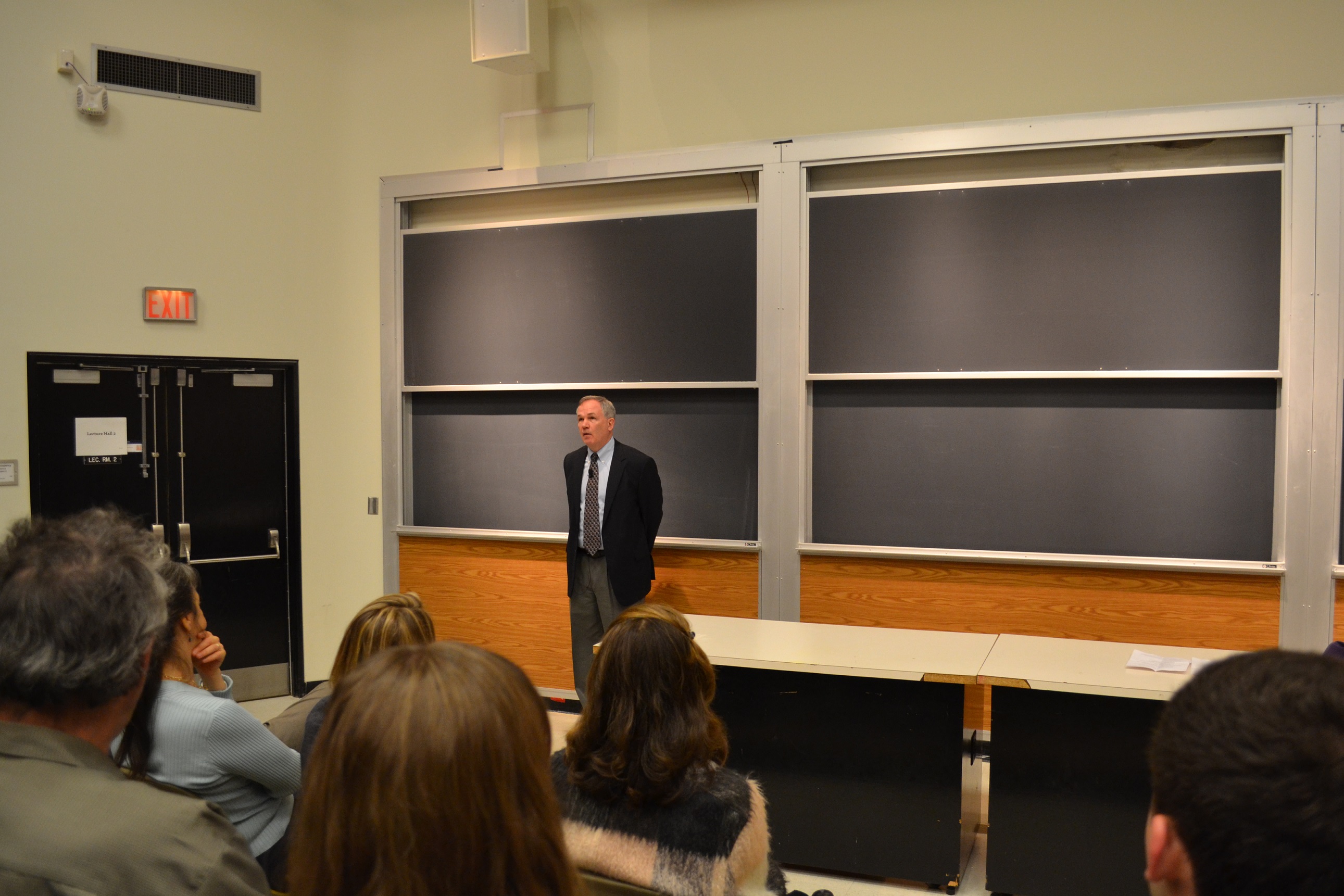

Former U.S. attorney Patrick Fitzgerald ’82 gave a talk titled “Ten Myths about Terrorists and How We Fight Them” on Thursday, Oct. 13 in Merrill Science Lecture Hall 2.
The event was free and open to the public, and brought in an audience of around 175 students, faculty, alumni and community members. The college’s economics department and the student-run Amherst Political Union co-sponsored the talk.
After earning a degree in economics and mathematics at Amherst, Fitzgerald served as an assistant U.S. attorney in the Southern District of New York from 1988 to 2001. During this time, he assisted in the prosecution of notable terrorism cases, including U.S. v. Rahman for the 1993 World Trade Center bombing.
From 2001 to 2012 he served as the U.S. attorney for the Northern District of Illinois, becoming the longest-serving U.S. attorney in Chicago ever. During this time, he convicted Illinois governors George Ryan and Rod Blagojevich of corruption and led the investigation of CIA agent Valerie Plame’s name leak.
He received an honorary doctorate from the college in 2007 and became a trustee in 2013.
Fitzgerald began by telling the audience that this would not be a scholarly analysis of terrorism, but instead based on his experiences working in the field.
“My exposure to terrorism was not as an academic,” he said. “It was very anecdotal.”
The first half of the event laid out what Fitzgerald considers the top 10 myths that exist around terrorists and methods of combating them. He urged the audience to consider their own presumptions about terrorism and the way in which it’s handled in the U.S.
One myth, he said, is that terrorism is solely a foreign threat. Fitzgerald said that domestic terrorists “were actually far more scary … The number of people who were domestic terrorists just scared the daylights out of us.”
Many public assumptions about terrorism are oversimplified, Fitzgerald said. One of these assumptions is that terrorism is just a border issue which can be easily solved with stricter security.
“There’s a nice simplicity to it,” he said. “There’s a problem, it’s over there [and] it’s coming here — just keep it out. I think people don’t quite get how hard it is to keep people out who are terrorists.”
A question and answer session followed the first half of the talk. Members of the audience asked Fitzgerald about topics like the CIA’s treatment of civil liberties, Syrian refugee immigration and the use of drone strikes.
Professor of Economics Geoffrey Woglom, who taught Fitzgerald during his time as an undergraduate, said that he enjoyed the speech and found it “captivating.”
“He just was involved in all of these fascinating, highly charged cases,” Woglom said.
“I think he articulated his points really well,” said Emilía Kaaber ’18, a co-president of the Amherst Political Union. “I like that he made it very clear that he was not approaching this from an academic standpoint. This is his in-the-field experience — ‘This is how I’ve experienced it [and] these are the things I’ve done.’”